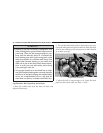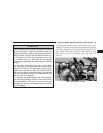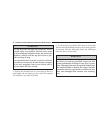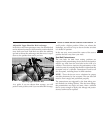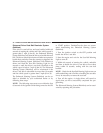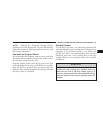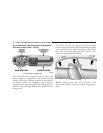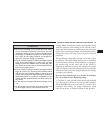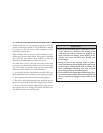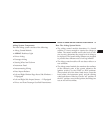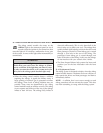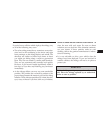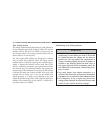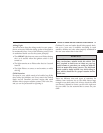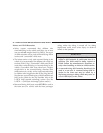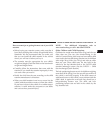
Children that are not big enough to properly wear the
vehicle seat belt (see section on “Child Restraint”) should
be secured in the rear seat in child restraints or belt-
positioning booster seats.
Older children who do not use child restraints or belt-
positioning booster seats should ride properly buckled
up in the rear seat. Never allow children to slide the
shoulder belt behind them or under their arm.
If a child from 1 to 12 years old must ride in the front
passenger seat because the vehicle is crowded, move the
seat as far back as possible, and use the proper child
restraint. See the section on “Child Restraint”.
2. You should read the instructions provided with your
child restraint to make sure that you are using it properly.
3. All occupants should use their seat belts properly.
4. The driver and front passenger seats should be moved
back as far as practical to allow the airbags time to inflate.
5. If your vehicle has left and right window bags, do not
lean against the door, airbags will inflate forcefully into
the space between you and the door.
WARNING!
•
Relying on the airbags alone could lead to more
severe injuries in a collision. The airbags work
with your seat belt to restrain you properly. In
some collisions the airbags won’t deploy at all.
Always wear your seat belts even though you
have airbags.
•
Being too close to the steering wheel or instru-
ment panel during airbag deployment could cause
serious injury. Airbags need room to inflate. Sit
back, comfortably extending your arms to reach
the steering wheel or instrument panel.
•
If the vehicle has left and right window bags, they
also need room to inflate. Do not lean against the
door or window. Sit upright in the center of the
seat.
36 THINGS TO KNOW BEFORE STARTING YOUR VEHICLE



